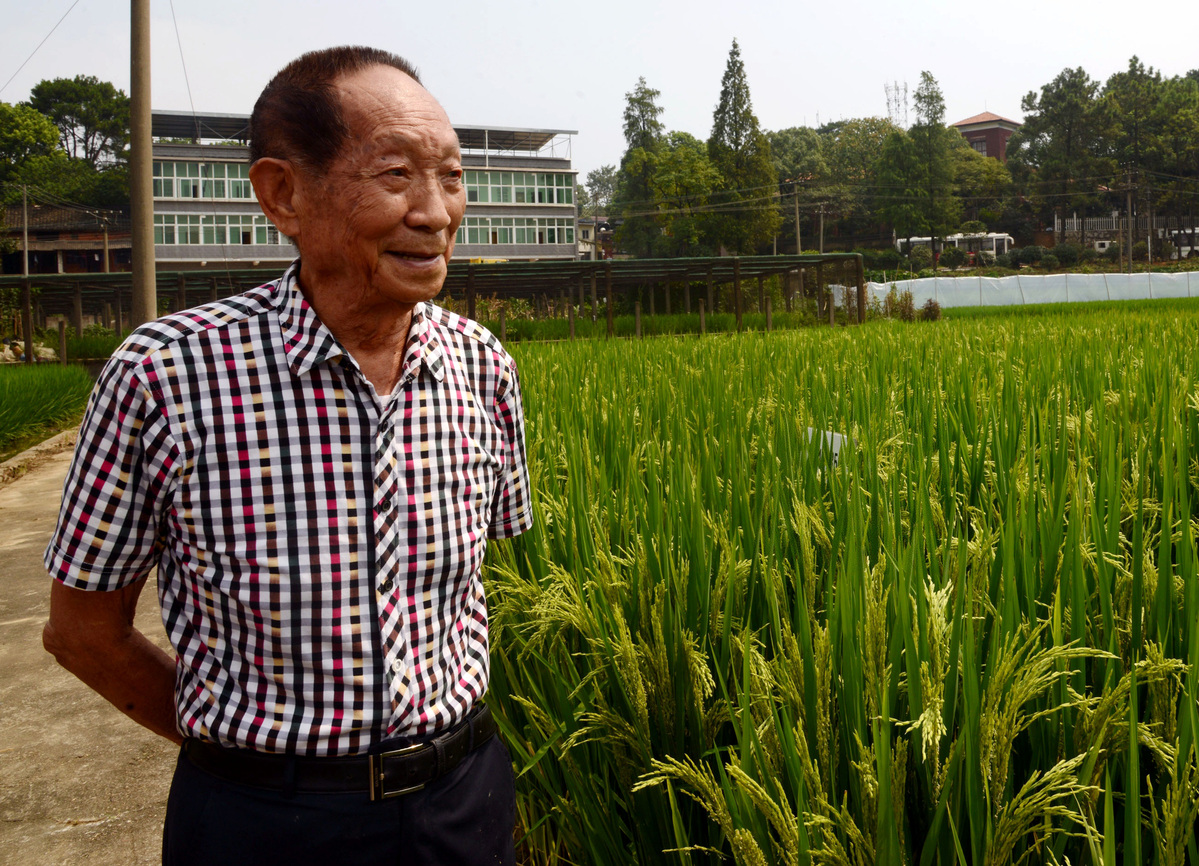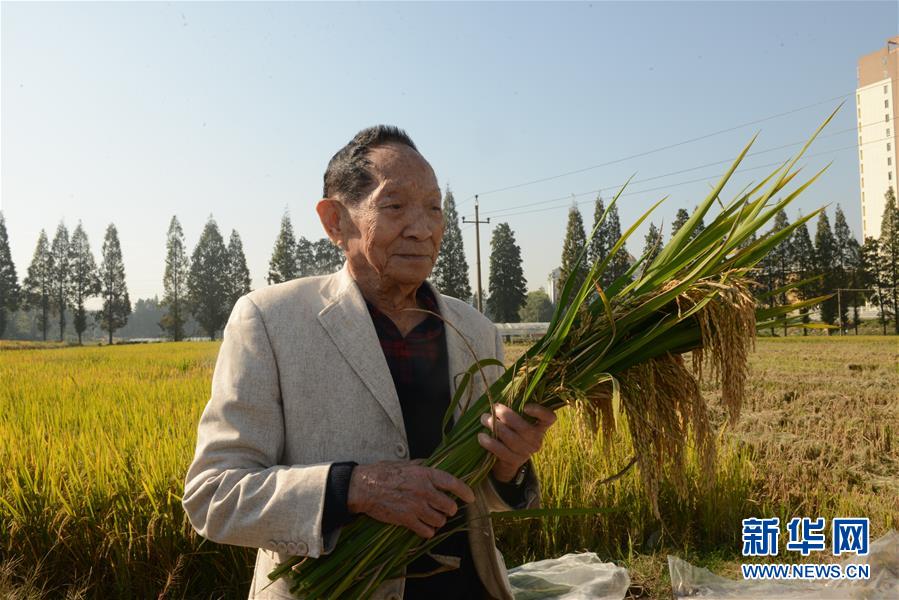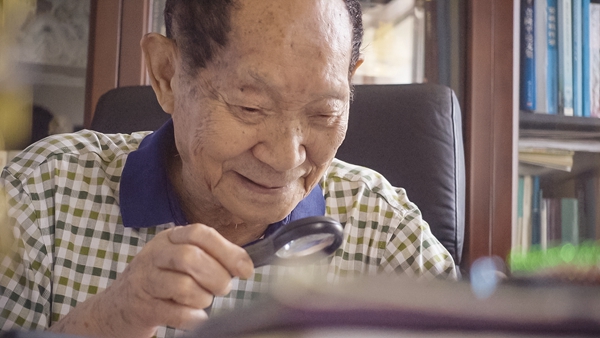
Yuan Longping is dubbed the "Father of Hybrid Rice", honored with the Medal of the Republic. [Photo/Xinhua]
'Father of hybrid rice' Yuan Longping passed away at 13:07 pm in Changsha of Hunan province, Xinhua reported on Saturday.
Yuan was undergoing treatment at a hospital, Yuan's son Yuan Ding'an, and Yuan's secretary Yang Yaosong confirmed.
The globally renown agronomist known for developing the first hybrid rice strains, was born on the ninth day of the seventh month in 1930, according to the lunar calendar.
He has helped China work a great wonder -- feeding nearly one-fifth of the world's population with less than 9 percent of the world's total land.

Yuan Longping holds a strain of the third-generation hybrid rice in Changsha, Hunan province, on Oct 30, 2018. [Photo/Xinhua]
Father of hybrid rice
In 1949, Yuan applied for Southwest Agricultural College and began his special connection with rice -- a staple food of the Chinese people that would become the focus of his lifelong research career.
A discovery of a peculiar wild rice species by Yuan in the southern island of Hainan in 1970 became the prelude of China's decades of hybrid rice research. Three years later, he cultivated the world's first high-yielding hybrid rice strain with three lines, namely, the male sterile, maintainer and restorer.
Hybrid rice has since been grown across the country and farmers reaped incredible output after switching to Yuan's hybrid varieties.
Hybrid rice recorded an annual yield about 20 percent higher than that of conventional rice strains-- meaning it could feed an extra 70 million people a year.

Agronomist Yuan Longping.[Photo provided to China Daily]
From China to the world
While food shortages have long been consigned to China's past, Yuan, the famine fighter, has a much bigger ambition -- to save the world from starvation.
Since the 1980s, Yuan's team has offered training courses in dozens of countries in Africa, the Americas and Asia -- providing a robust food source in areas with a high risk of famine.
Globally, more than 820 million people were hungry in 2018, according to a UN report. And if hybrid rice is planted in half of the world's 147 million hectares of paddy fields, the additional yield alone can feed another 500 million people, said Yuan.
Yuan's team has continued to make new breakthroughs. Yuan's team was invited to make a trial plantation of the saline-alkaline tolerant rice in experimental fields in Dubai in January 2018, achieving huge success. China's export of saline-alkaline tolerant rice and the technique has been eyed as a way to combat the world's food insecurity.
From having enough to eat to eating well
Now the focus of Yuan's hybrid rice project has changed from increasing output to green and sustainable development.
In September 2017, a strain of low-cadmium indica rice developed by Yuan's team and the Hunan provincial academy of agricultural sciences was able to reduce the average amount of cadmium in rice by more than 90 percent in areas suffering from heavy metal pollution.
Sources: China Daily
Editor: Lv Yun